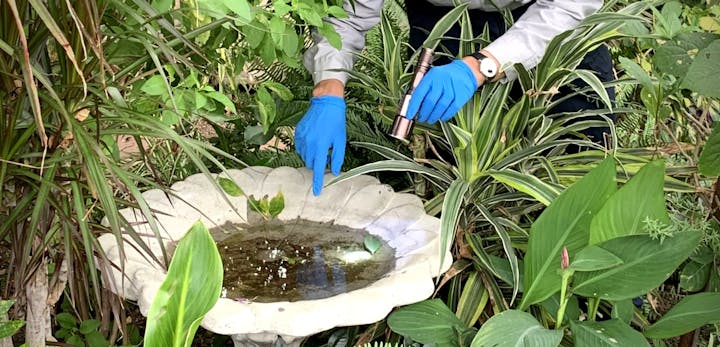Frequently Asked Questions
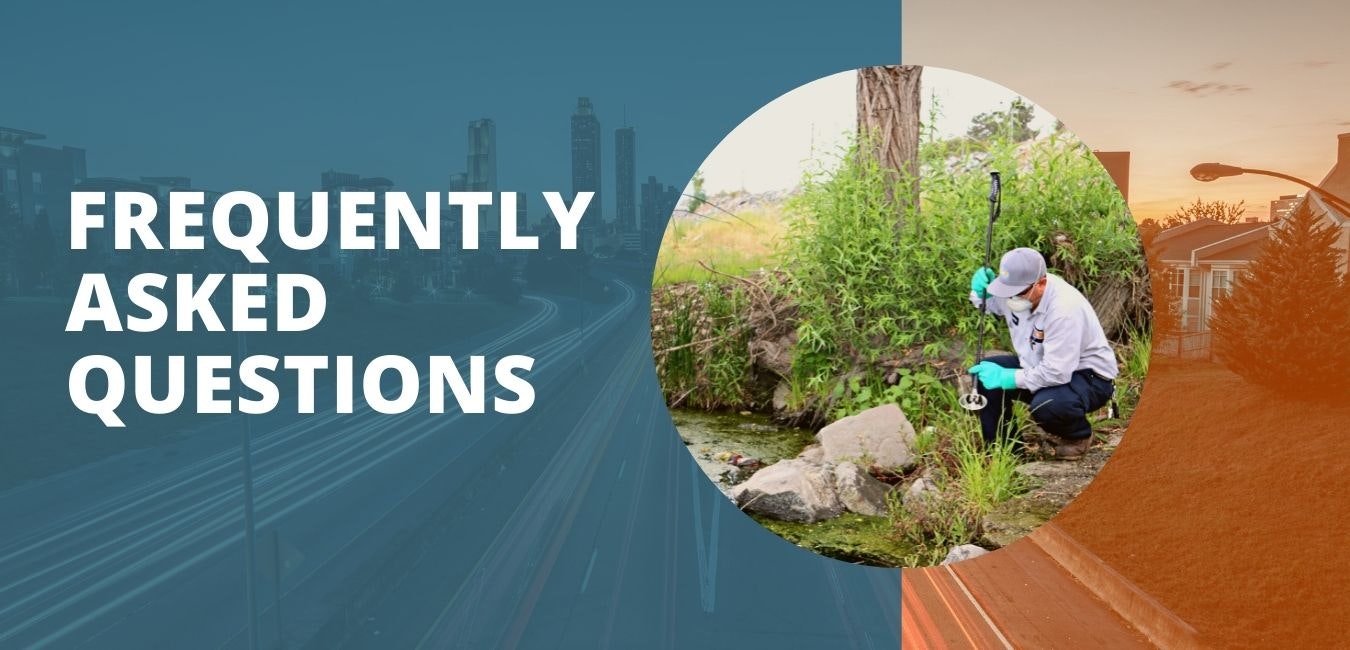
What is a Vector?
A vector is any animal or insect capable of transmitting disease or that is a public health nuisance. The GLACVCD controls mosquito, black fly, and midge populations. Mosquitoes are of the highest concern for the District because they transmit diseases to humans.
Are you affiliated with Los Angeles County? How Are You Funded?
No, we are an independent special district governed by a 37-member Board of Trustees. The district is funded through ad valorem (property) taxes and benefit assessments.
Is West Nile virus still a concern here in Los Angeles?
Yes. West Nile virus is now endemic to Los Angeles County and remains a serious public health threat. It is important to continue taking proactive measures to prevent mosquito breeding around your home and prevent mosquito bites.
Has WNV been detected in your community? View our latest updates on virus activity.
How do I know if I have West Nile virus?
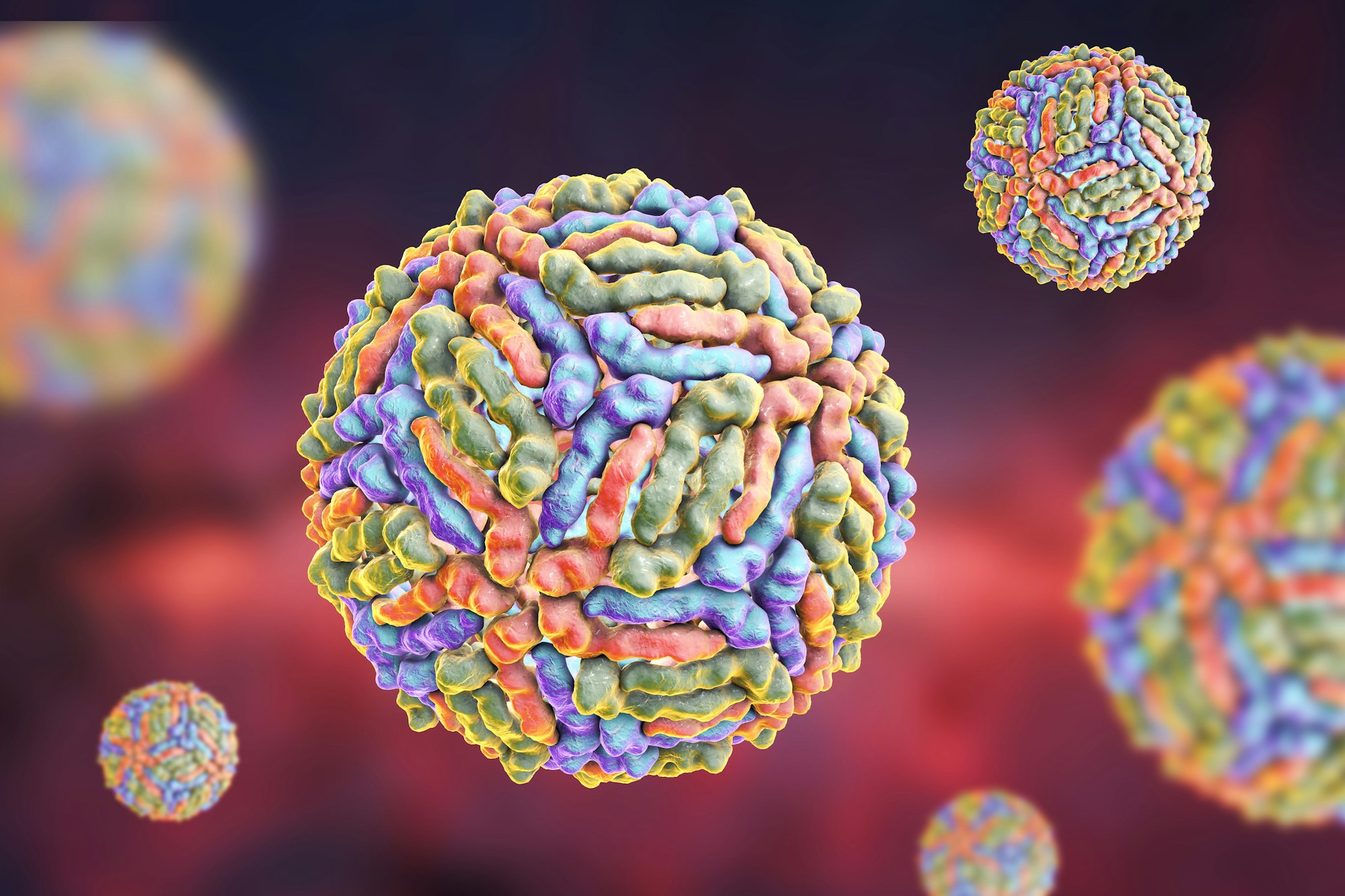
One in five people infected with West Nile virus will develop symptoms, which include fever, headache and body aches, nausea, a skin rash, and/or swollen lymph nodes. These symptoms can last several weeks to months. In severe cases, WNV neurological symptoms may occur as a result of encephalitis, meningitis, and meningoencephalitis. Severe symptoms may include high fever, headache, neck stiffness, disorientation, coma, tremors, paralysis, and possibly death. The time between the mosquito bite and the onset of illness ranges from 5 to 15 days in humans. If you start exhibiting signs of illness after a mosquito bite, contact your physician.
What is GLACVCD doing to prevent the transmission of West Nile virus?
We cannot prevent West Nile virus from entering the area; however, reducing the mosquito population and educating the public on ways to prevent mosquito bites reduces the chance of WNV transmission and infection. The GLACVCD Scientific-Technical Services Department routinely surveys for mosquito-borne diseases such as West Nile virus, St. Louis encephalitis, and Western equine encephalomyelitis. Adult mosquitoes are routinely trapped and tested for these viruses. Vector Control Specialists survey the District regularly for sites where mosquitoes may breed and eliminate or control these as necessary.
Learn more about the products we use to control mosquitoes in your neighborhood HERE.
I saw a West Nile virus warning sign posted at my local park. Should I be concerned?

The District posts warning signs in public places such as parks when recent surveillance in the area indicates the presence of disease activity such as West Nile virus. Signs are generally posted up to approximately ½ mile from the surveillance trap site to accommodate for the flight range of local mosquitoes. The black and red signs indicate that West Nile virus activity has been confirmed in the area and caution residents to take protective measures against mosquito bites. The signs also provide the District’s contact information for questions. People who work, live, and recreate in the area should be particularly careful when outdoors between dusk and dawn, as this is the time when the mosquitoes are most active and are most likely to bite. The use of mosquito repellent and long-sleeved shirts and pants are the best defense against mosquito bites.
What information do you need from me if I want to submit a service request?
We ask that you provide us with the source type and exact location of the source, including street address, cross streets, and whether this is private or public property. We request contact information, including a contact phone number for any follow-up calls.
Do you offer community presentations, training, and workshops?
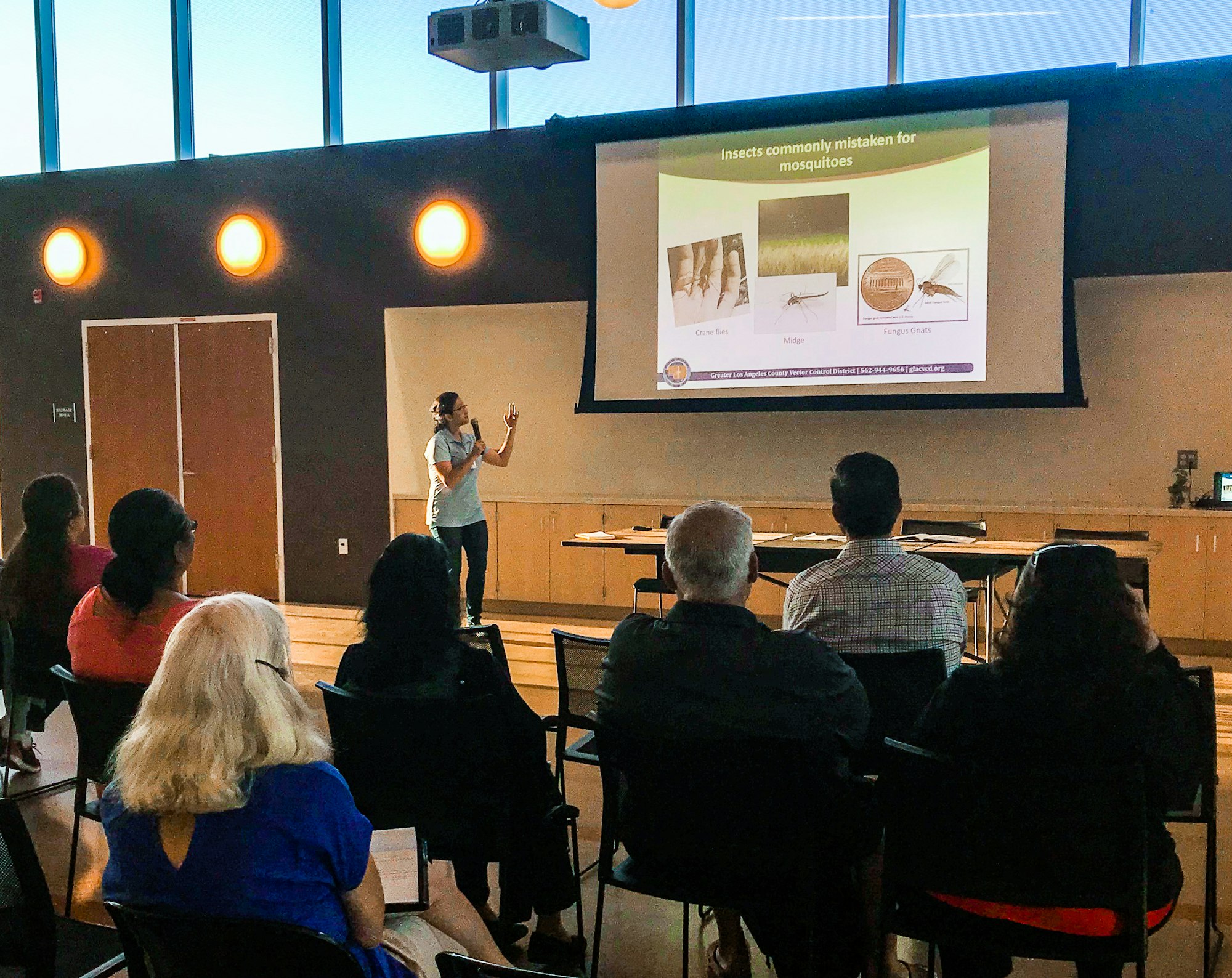
Yes. The Department of Community Affairs offers community presentations and various classroom education programs. The popular Mosquito League program offers a mobile, hands-on science lesson for 5th graders that complies with California educational standards. To learn more or book a presentation or the education program. please visit the Community Outreach and Education Page
How long will it take for a water source to become a mosquito breeding problem?
Weather conditions play an important role in the mosquito life cycle. In warm summer months, a puddle of stagnant water can become an ideal breeding source in several days.
How do I know if a water source is breeding mosquitoes?

Any stagnant water source can be a potential mosquito breeding site. Stagnant water with algae, debris, and other organic materials is an ideal habitat for mosquito larvae. Since mosquitoes lay their eggs on the surface of the water, check for any mosquito eggs, egg rafts, or larvae.
Download our Mosquito Source Checklist for a full list of potential breeding sources.
I drained my pool a few years ago. What can I do with rainwater that puddles at the bottom of the pool?
Treat the accumulated water with chlorine and other approved chemicals to prevent mosquito breeding. Notify the Greater Los Angeles County Vector Control District, and we will place the pool on our routine treatment route. Upon request, the District will also deliver free mosquitofish to residents for placement in backyard ponds and fountains as a form of biological control for mosquito breeding.
You sent a Vector Control Specialist out to treat my pool. Why is still green?

Our field specialists only treat the pool to prevent mosquito breeding using chemical control methods. The treatment does not change the color of the water or clean the pool. Residents should contact a professional pool maintenance service to bring the pool up to working order.
Can I be fined for not cleaning up my yard or green swimming pool?
All property owners with mosquito breeding sources are subject to legal abatement procedures under the State Health and Safety Code (SHSC Section 2060-67). Failure to comply with a legal public nuisance abatement procedure may result in civil penalties that range from $100 per day, including a misdemeanor offense (municipality ordinance), to $1,000 per day (SHSC Section 2061(b)(5)).000 et.seq.)
What can I do to protect myself from mosquito bites?
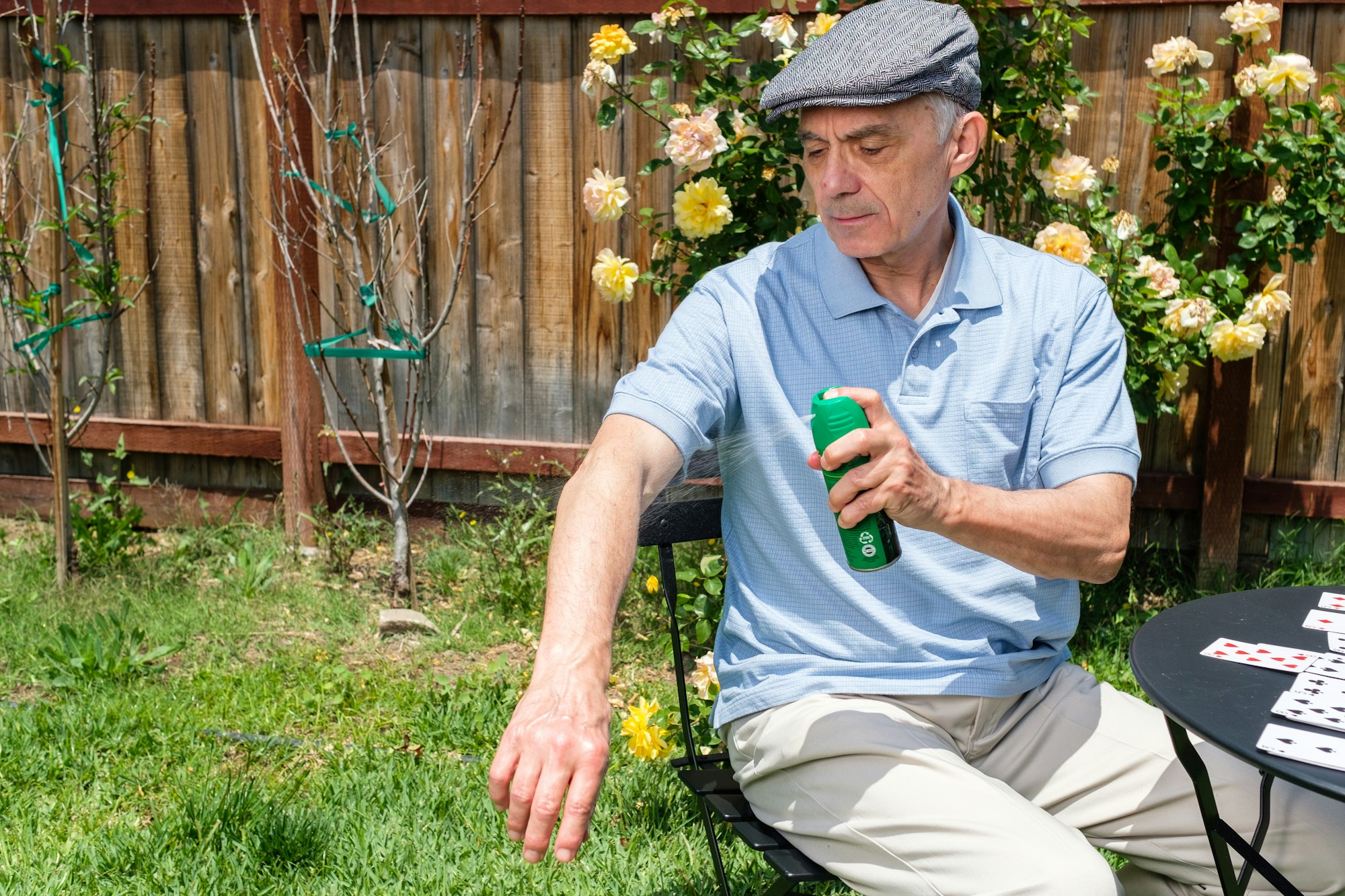
Your best defense against the West Nile virus is to take proactive measures to prevent mosquito bites. Eliminate any potential mosquito breeding sources around your home by dumping and draining standing water. Avoid outdoor activities between dusk and dawn during the warm mosquito season since mosquitoes are most active during this time. When you are outdoors during this time, wear loose-fitting pants and long-sleeve shirts to decrease exposure to mosquitoes. Use approved mosquito repellents containing CDC-recommended insect repellent containing the ingredients DEET, Picaridin, IR3535, or Oil of Lemon Eucalyptus. Be sure to read and follow the manufacturer’s directions for use.
Where can I go for more information?
You can contact the Greater Los Angeles County Vector Control District by calling (562)944-9656 or visiting our Contact Us form found on the right corner of the website. The California Department of Public Health is also a reliable source for current information on West Nile virus. Visit www.westnile.ca.gov or call the department’s toll-free hotline to report a dead bird at (877) WNV-BIRD.

